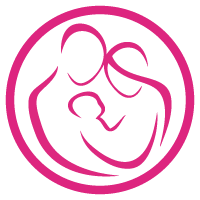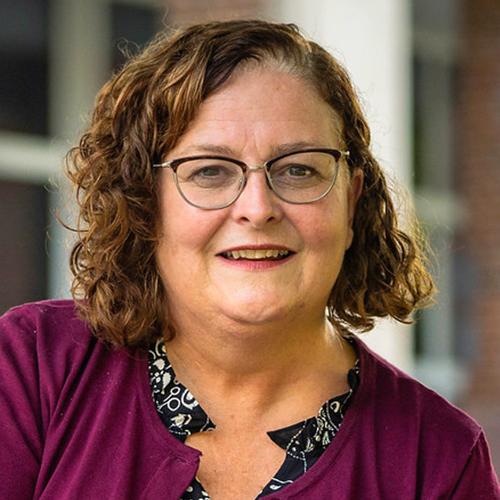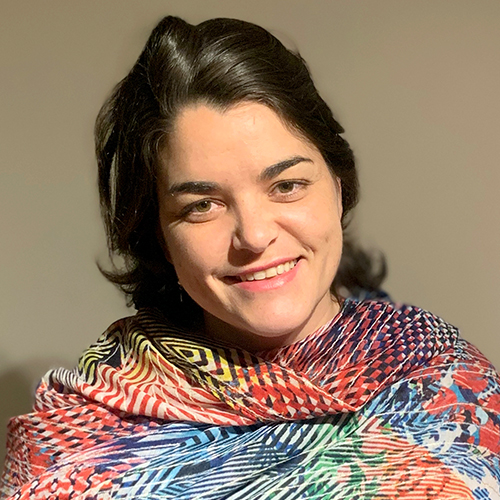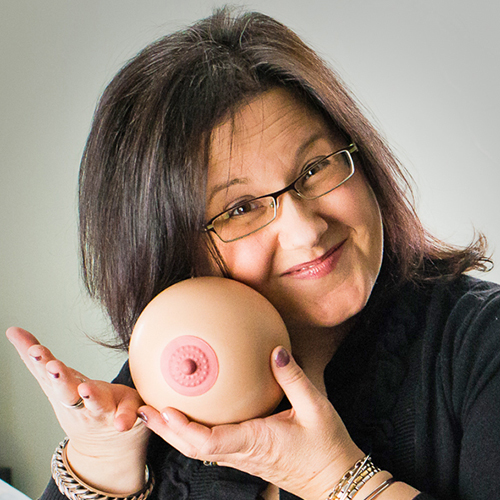 Family-Centered Care Online Course(s) & Continuing Education
Family-Centered Care Online Course(s) & Continuing Education
Access the latest clinical skills and research for Family-Centered Care for NEONATOLOGY professional training. These Family-Centered Care online courses provide practice-changing skills and valuable perspectives from leading global experts. This Family-Centered Care education has been accredited for a variety of CEUs / CERPs and can be accessed on-demand, at your own pace.
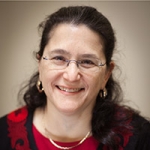

Naomi Bar-Yam, PhD, ACSW, has been working in maternal and child health for over 30 years as an educator, researcher, advocate, and writer. She is the immediate past president of the Human Milk Banking Association of North America (HMBANA) and the founding director of Mothers’ Milk Bank Northeast, which provides safe donor milk to hospitals and families throughout the northeastern US. An expert on access to perinatal health care and policies that support breastfeeding, she has been a consultant to the Centers for Disease Control (on a panel that created “The CDC Guide to Breastfeeding Interventions”), to the United States Breastfeeding Committee (developing an issue paper addressed to CEOs and legislators on breastfeeding and the workplace), and to the March of Dimes (developing educational material for women and families who are medically and socially vulnerable to high-risk pregnancy). She also developed a curriculum for hospital personnel about combining breastfeeding with their work. She reviews articles submitted to the Journal of Human Lactation, Breastfeeding Medicine, and other publications related to breastfeeding, milk banking, and access to perinatal child care. As Executive Director of Mothers’ Milk Bank Northeast, she is thoroughly versed in the technical, procedural, and ethical aspects of milk banking. She often speaks at professional conferences, hospital staff trainings, and grand rounds about milk banking and breastfeeding policies.
Topic: Ethical Concerns in Human Milk Exchange - [View Abstract]
Topic: Getting Milk to Babies: Social, medical, economic and commercial forces - [View Abstract]
Topic: The Whys and Hows of Using Banked Donor Milk - [View Abstract]
This talk uses research literature and hospital policies and programs to explore ways for families of babies in the NICU to be meaningful and active members of the NICU care team. We will look at a global snapshot of prematurity; define what a team is and who is on the NICU care team; and discuss the short- and long-term goals of the NICU care team, as well as many tools and strategies that team members and the team as a whole have at their disposal to reach those goals. Can be adapted for US or global audiences.

View Details / Enroll
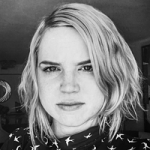
Attachment and Neurodevelopmental Outcomes in Premature Infants: The Role of Interpersonal Neurobiology in the NICU

Kara Wahlin is a licensed marriage and family therapist and art therapist who resides in the Coachella Valley of southern California. After going through the preterm birth of her twin sons William and Elliott, and the subsequent loss of William, Kara made the promise to dedicate her clinical work to helping other families coping with the trauma and loss often wrought by the NICU experience. She developed the website NICU Healing in order to provide free information, couples and individual therapy, and online support to NICU families. Kara uses strengths-based, neuroloscientifically-informed and creative practices to empower her clients to picking up the pieces of their lives and moving forward with their new life stories. She speaks frequently at conferences discussing best clinical practices, and writes for her own as well as other blogs about new ways of coping with mental health issues that come up after traumatic experiences. In her free time, Kara and her son Elliott are art machines and expert hikers, and also spend their time at home with their menagerie of small animals.
Evidence has shown that attachment between a primary caregiver and their preterm infant can change the neurodevelopmental outcomes for the infant later in life. Attachment can be seen as a living organism between parent/caregiver and child, and with encouraged development and growth, the attachment relationship can have profound effects, even in the context of the most difficult of circumstances and medical diagnoses. The more NICU caregivers know how to encourage attachment, the likelier a family system will need less medical/psychological intervention after discharge from the hospital.
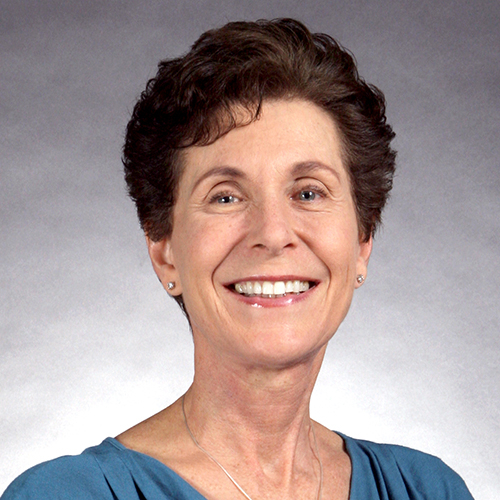
Building Strong Bonds: The Neurobiology of Parent-Infant Attachment in the NICU

After raising three children as a stay-at-home mother, Dr. Phillips received a master’s degree in Developmental Psychology with a focus on mother-infant attachment, became NIDCAP certified as a Preterm Infant Developmental Specialist, and then attended medical school at University of California, Davis. She completed her pediatric residency and neonatology fellowship at Loma Linda University Children's Hospital in S. California and is an attending neonatologist in the Level 4 NICU at the same hospital. She is an Associate Professor of Pediatrics/Neonatology at Loma Linda University School of Medicine and is Pediatric Department Chair and Medical Director of Neonatal Services at Loma Linda University Medical Center-Murrieta. Dr. Phillips is an International Board-Certified Lactation Consultant, a Fellow of the Academy of Breastfeeding Medicine, and a past president of the National Perinatal Association (NPA). She is currently President of the Association for Prenatal and Perinatal Psychology and Health (APPPAH), a global non-profit organization with a mission to support healthy infant-parent relationships before and after birth. Her passion is to honor and nurture the earliest connections between babies and their parents.
Developing secure bonds of attachment is a major developmental task for all human babies, a process that is considered to be foundational for future mental health and even physical wellbeing. The mechanism for doing so is called “nurturing,” and a growing body of evidence supports the impact of nurturing on physiologic stability, co-regulation and growth, as well as brain development and ongoing physical and emotional health. The first bond of attachment is between mother and baby and begins before birth. Separation of mothers and babies always causes stress and interrupts the bonding and attachment process. When temporary separation is necessary in the NICU, there are ways we can support mothers and babies to help minimize the detrimental effects of separation and to promote healing. This presentation will describe the neuroscience behind parent-infant bonding and attachment and the neurobiology of skin-to-skin contact as a modality for nurturing babies. We will describe ways to communicate with NICU babies in a manner that enhances bonding and attachment and promotes the development of trust as well as enhances brain and language development. We will discuss ways to support babies, mothers, families, and staff in promoting bonding and attachment in the NICU.
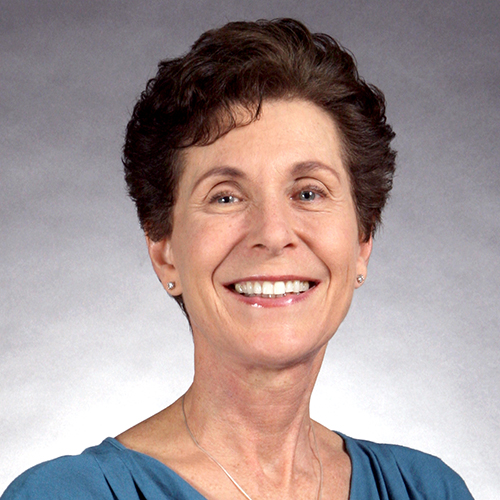
View Details / Enroll
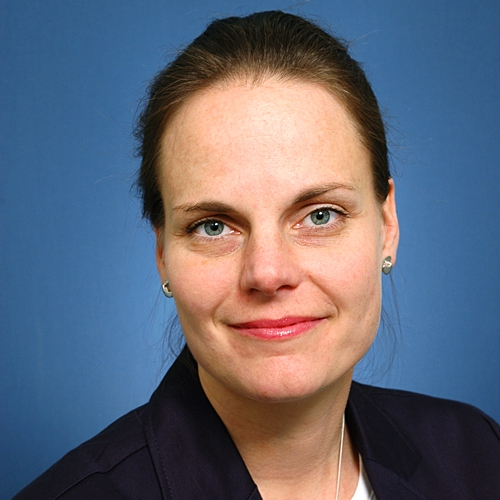

Anna Axelin’s academic career has included conducting quantitative and qualitative research on maternity and neonatal care in multidisciplinary and international research groups. In the Academic year 2011-2012, she joined the faculty of Department of Family Health Care Nursing in University of California San Francisco for her post-doctoral research. Since 2018, she was appointed as an associated researcher in the Department of International Maternal and Child Health at University of Uppsala in Sweden. In addition to the academic career, she has ten-year working experience as a NICU nurse.
She is leading the Health in Early Life and Parenthood (HELP) research group which aims to promote health and welfare in the early stages of life. Her special research interest is how to keep parents and sick newborns together throughout the infant hospital stay and strengthen their relationship already during pregnancy. Anna Axelin’s other research interests include pain and sleep in neonates, and the implementation of evidence-based practice in maternity and neonatal care with the help information technology.
Infants should not be separated from their parents. Parent-infant closeness is vital for the development of parent-infant relationship and consequently for parental well-being and optimal infant development. However, every year, due to medical care or hospital routines detrimental separation affects millions of infants. This presentation explores parents’ and staff’s perceptions of infant-parent closeness and separation in maternity care, delivery ward and neonatal intensive care environment. Based on these experiences, barriers (e.g. care routines and resources) and facilitators (e.g. patient centered communication skills, parent autonomy, single family rooms and couplet care) for closeness will be examined and potential strategies to facilitate parent-infant closeness in neonatal care are discussed.

View Details / Enroll
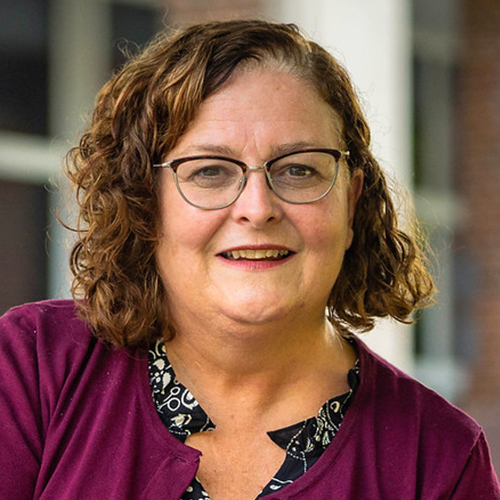

Madge E. Buus-Frank DNP, APRN-BC, FAAN is a nurse practitioner, healthcare improvement scientists and scholar who has been actively engaged in both providing and improving healthcare for nearly 4 decades. Dr. Buus-Frank joined Dartmouth Hitchcock Medical Center in 1990 as one of the first acute care nurse practitioners in the Intensive Care Nursery where she played a pivotal role in building a team of NNPs to serve the Intensive Care Nursery in Lebanon, Nashua, and Manchester. Madge continues to serve as a clinical faculty member in the Department of Pediatrics at the Geisel School of Medicine at Dartmouth and remains invigorated by her clinical practice at the Children’s Hospital at Dartmouth (CHaD) where she has practiced for 30+ years.
Dr. Buus-Frank has been an early innovator on the front lines of developing and testing Learning Health Systems focused on coproducing care with patients and families. as well as improving education and research along the way. In 2019 Dr. Buus-Frank joined The Dartmouth Institute as a Senior Scientist. Her implementation science work currently focuses on a partnership between Dartmouth Hitchcock Health and The Dartmouth Institute, to deliver on the DHH strategic plan, called “The Promise.” She is a co-primary investigator leading a team that is testing the impact of a Learning Health System approach to accelerate co-production of care, to improve the experience of care for our patients and our people and our system. The LHS testing is currently underway in the oncology setting and we will be using whole system measures to evaluate the impact of the Learning health system on patient and family outcomes, cost and value, and research, scholarship and education. Additionally Dr. Buus-Frank serves on a TDI team supporting the Crohn’s & Colitis Foundation’s growing quality improvement collaborative (Qorus) serving as a ead curriculum consultant.
Dr. Buus-Frank is the immediate past Executive Vice President of the Vermont Oxford Network (VON), one of the world’s largest healthcare data and improvement networks in the world. At VON she collaborated with international faculty to conceptualize, design and executed large-scale multi-center quality improvement collaboratives, and massive on-line courses (MOOCs) , bringing >700 hospitals, states and health systems together to learn, share, measure and improve the quality, safety and value of care. Additionally, Dr. Buus-Frank championed and led the development of partnerships with state perinatal quality improvement collaboratives where she built both the common will and capacity to conduct audits and embrace e-based educational implementation packages allowing VON to scale the learning from center level improvement to achieve population-wide results using robust on-line educational technology and learning programs.
Dr. Buus-Frank was the Founding Editor-in-Chief for Advances in Neonatal Care: The Official Journal of the National Association of Neonatal Nurses, a peer-reviewed publication dedicated to advancing the art and science of neonatal care, serving for 5 years in this capacity. She was honored by NANN with a Lifetime Achievement Award in 2021. She is the author of numerous peer-reviewed publications and has been inducted as a Fellow of the American Academy of Nursing (FAAN) for her pioneering work in the field of neonatal care and improvement science.
Join your colleagues for a whirlwind journey of the past 20 years of neonatal care. Together we will reflect on key lessons from the past, identify opportunities to improve care in the present and reimagine how we might provide care to create a preferred future that fosters better health and outcomes for every baby, every time, and everywhere.
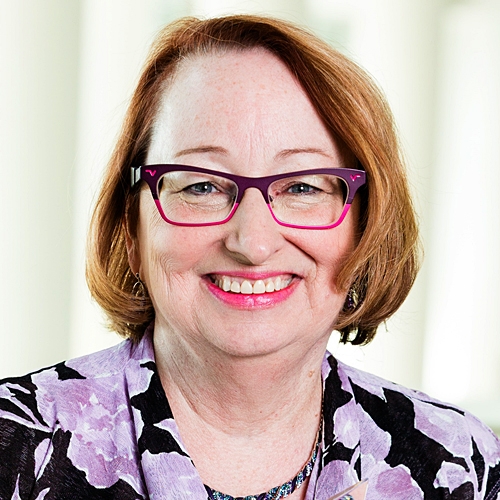
Implications of Early Life Experience and Brain Development in the Preterm Infant

Dr. Jacqueline McGrath is a Professor and Vice Dean for Faculty Excellence at the UTH San Antonio, School of Nursing. Research foci include integration of family-centered and developmentally supportive caregiving with premature infants and their families in the NICU. More specifically, her work has focused on the biobehavioral outcomes of increasing parent engagement on both parents and the infant. Increasing parent engagement is believed to be a mechanism for increasing parent self-management skills after infant discharge and ultimately enhancing infant long-term development. She has also conducted studies related to preterm infants’ oral feeding readiness and preterm infant touch and massage (parent provided). Based on her research, she developed the NICU-PLAY program for parents and their hospitalized preterm infants. She has published more than 150 peer-reviewed articles. Dr. McGrath is the Co-Editor for Advances in Neonatal Care the journal of the National Association of Neonatal Nurses. In 2007, Dr. McGrath became a fellow in the American Academy of Nursing. She received her BSN from the University of Akron; MSN from Kent State University in parent-child nursing; both a post-master’s certificate as a Neonatal Nurse Practitioner and a PhD from the University of Pennsylvania.
Parents are essential to infant brain development; high risk birth with admission to the Neonatal Intensive Care Unit (NICU) only increases their vital role. Current evidence increasingly provides direction for how best to fully engage parents through increased opportunities for both physical and emotional closeness enhancing parent-infant interactions and participation in NICU caregiving activities. Early brain development is highly affected by early experiences particularly those with parents. Parent engagement is defined as a dynamic process focused on enhancing and supporting the parent-infant experience; specifically enhancing the acquisition of skills for problem-solving and provision of appropriate infant care based on the unique infant needs. Enhancing parent engagement is one means of decreasing what has been recently documented as post-traumatic stress disorder (PTSD) often experienced by parents who must traverse the chaotic NICU environment while supporting their high-risk infant. Concurrently, the unique needs of the infant’s developing brain demands that caregiving by parent and health providers be neuroprotective matching the “expectations” for experiences that “nurture” their development.

View Details / Enroll
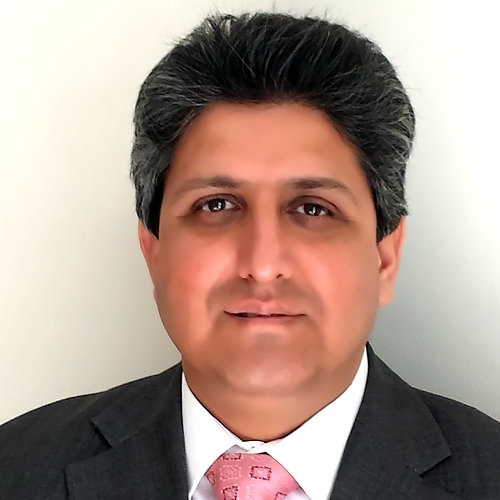
It Is My Baby Too: Improving Fathers’ Experiences of Neonatal Care

Prof. (Dr.) Minesh Khashu M.B.B.S, MD, FRCPCH, FRSA, Q Fellow ( Health Foundation & NHS Improvement), Fellow England Centre for Practice Development Consultant Neonatologist, Poole Hospital NHS Foundation Trust & Prof. of Perinatal Health, Bournemouth University. Clinical Director, Maternity & Neonatal Care, Regional Strategic Clinical Network, NHS England, Wessex Dr. Khashu has received national and international recognition for his work especially in Quality Improvement, Necrotizing Enterocolitis and improving fathers experiences of neonatal care. Dr. Khashu is a clinical leader reimagining healthcare with a focus on system wide transformation, continuous Quality Improvement and Patient Centred Care. He has experience of clinical management and leadership at hospital, regional and national level including strategic change, system redesign, large scale quality improvement and development of national guidance and multi stakeholder collaboration. He has developed the DadPad Neonatal, a resource to support dads whose babies have been admitted to neonatal units. This has been very well received by parents, families, healthcare professionals and charities and nominated for multiple national awards. https://thedadpad.co.uk/neonatal/ He has also set up SIGNEC (special interest group for NEC) in the U.K. and developed a website for parents/families and health professiaonals which has been much appreciated. https://signec.org/ He convenes International Conferences on NEC in London regularly.
The presentation will cover current evidence of suboptimal practice in terms of fathers expereinces within maternity and neonatal services, our specific recommendations to improve practice and my development of DadPad Neonatal as a specific resource to improve experiences of fathers.
We have reviewed the literature on engaging fathers in neonatal units, with the aim of making recommendations for improving experience of fathers as well as health outcomes in neonatal practice. Fathers typically describe the opportunity to bond with their babies in glowing terms of gratitude, happiness and love. These experiences are underpinned by hormonal and neurobiological changes. We find that engagement with fathers remains sub-optimal. Fathers, also, are subject to different social expectations from mothers, which shapes how they respond to the situation and how neonatal staff treats them.
We have put forth 3 core principles and 12 practical recommendations for neonatal teams to focus on.

View Details / Enroll
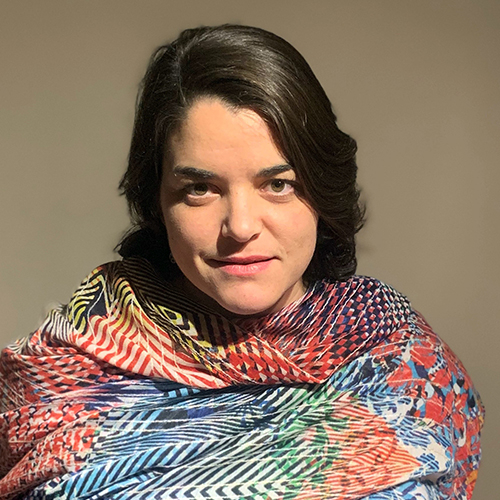
Oral Colostrum Care as an Immunological Intervention in the NICU

Mariana Colmenares Castano was born in Mexico City, and from an early age she was fascinated by animals and nature.She studied medicine at the National University of Mexico (UNAM), and foundher passion as a pediatrician doing her residency at the National Pediatric Institute. When her first child was born she witnessed the lack of knowledge and commitment to breastfeeding within the medical profession, and so she decided to specialize in breastfeeding medicine. She certified as a Lactation Consultant (IBCLC) in 2011.Mariana is a member of the International Lactation Consultant Association, the Academy of Breastfeeding Medicine, and a proud founding member of the National Lactation Consultant Association of Mexico (ACCLAM), where she served on the Board of Directors as Education Coordinator (2014-2019). She is part of board director for the Academy of Breastfeeding Medicine for a 3 year period (2019-2022) and recently named as secretary for the Academy of Breastfeeding Medicine. Mariana is a member of the team for Breastfeeding Country Index BFCI, a project from Yale University and Universidad Iberoamericana. She is consultant for the National Health Institute in Mexico and has collaborated with UNICEF in breastfeeding projects and part of the steering committee for the WHO. She has spoken at national and international conferences, co-published numerous articles and co-authored a chapter for the National Academy of Medicine. At the moment she is a Clinical Fellow in Community Paediatrics in London.
Topic: Breastfeeding The Baby With Congenital Heart Disease - [View Abstract]
Topic: Breastfeeding with Insufficient Glandular Tissue - [View Abstract]
Topic: Clinical Assessment and Management of Jaundice in the Newborn - [View Abstract]
Topic: Oral Colostrum Care as an Immunological Intervention in the NICU - [View Abstract]
Breastmilk must be the food for every human on earth. During the last decades we have been learning much more about the immunoprotective and immunomodulating properties of human milk, specifically colostrum. With advancements in neonatal care, we also have new challenges. As health care professionals it is an ethical responsibility to protect and promote breastfeeding practices for every family. Oral colostrum care is the use of own mother's colostrum in the cheeks and mouth of the baby not for a feeding purpose. It is an opportunity to initiate an immunological intervention in small or sick babies, allowing interaction of immunological properties with the linfoid tissue, promoting and improving microbiome and immune response. The mother and the family can also benefit from this intervention improving and enhancing integral participation and prevalence of breastfeeding in the long term.

View Details / Enroll
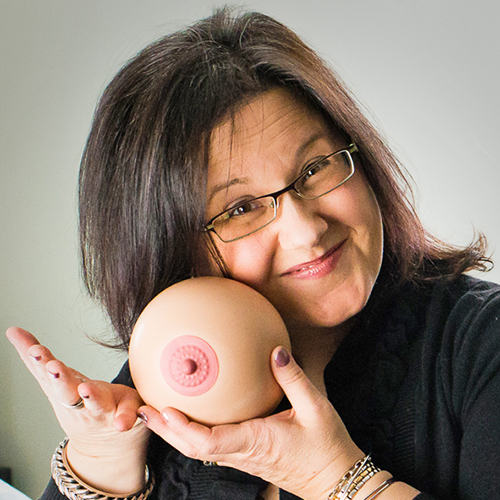
Pumping for Hospitalized Babies: 12 Keys to Supporting Families

Jeanette Mesite Frem, MHS, IBCLC, RLC, CCE is an experienced childbirth educator, IBCLC-lactation consultant and retired birth doula. She started her career working with families while serving as a Peace Corps Volunteer in Côte d'Ivoire, West Africa in the early 90s. She loved that work so much she went on to receive a public health masters degree from Johns Hopkins School of Public Health, focusing her studies on nutrition for maternal and child health. Her two children were breastfed for more than 2 years each and Jeanette has experience pumping at work for both children and has supported more than a thousand families with feeding and pumping over the last 20 years.
Jeanette provides prenatal childbirth and breastfeeding classes at her office in Northborough, Massachusetts, as well as providing virtual and office feeding consultations. She also enjoys leading workshops for perinatal health professionals and mentoring those who work with families. If you have questions, feel free to email [email protected].
Topic: Pumping for Hospitalized Babies: 12 Keys to Supporting Families - [View Abstract]
Perinatal professionals in hospitals have great influence over how much human milk a baby receives, as well as how encouraged parents feel related to pumping and initiating and maintaining their milk production and eventually meeting their infant feeding goals. When hospital staff help with pumping in the early hours, days, and weeks of a new and fragile baby’s life—especially when at breast, chest or body feeding isn’t possible—getting that professional support is likely to make a difference in the long-term health of that child as well as the health of their parent. Healthcare providers can facilitate milk collection and provision of it to babies and support parents with specific and updated guidance on pump choices, pump usage, flange fit and milk storage. Those who work in hospitals with families can make an important positive impact on long-term breastfeeding and human-milk feeding rates. This session will cover 12 simple ways (including the what, why, how, when and where of pumping) that healthcare providers can support parents who pump for their hospitalized baby.

View Details / Enroll
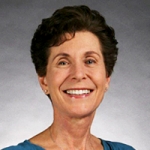
Seven Neuroprotective Core Measures: A Model for Implementing Family-Centered Developmental Care in the NICU

After raising three children as a stay-at-home mother, Dr. Phillips received a Masters degree in Developmental Psychology, became NIDCAP certified as an Infant Developmental Specialist, and then attended medical school at University of California, Davis, graduating in 2004. She completed her pediatric residency and neonatology fellowship at Loma Linda University Children's Hospital in Loma Linda, CA and is currently an attending neonatologist in the NICU at the same hospital as well as Co-Medical Director of Newborn Nursery at Loma Linda University Medical Center-Murrieta. Dr. Phillips is an International Board Certified Lactation Consultant and is a Fellow of the Academy of Breastfeeding Medicine. She is the immediate past president of the National Perinatal Association. Her primary areas of interest are mother-infant attachment, breastfeeding education and support, and Family-Centered Neuroprotective Care of premature infants in the NICU.
There is ample evidence that Family-Centered Developmental Care in the NICU results in improved neonatal and neurodevelopmental outcomes, increased family satisfaction and even enhanced employee satisfaction once the culture change has been accomplished. However, implementing the known principles of Family-Centered Developmental Care in the NICU to create those culture changes has long been a challenge. Several models of implementing developmental care have been tried and met with varying challenges and degrees of success. The Seven Neuroprotective Core Measures of Family-Centered Developmental Care in the Neonatal Integrative Developmental Care Model has been trialed in our NICU for the past three years and has proven to be effective as a tool to bring about staff buy-in and engagement in the process of implementing Family-Centered Developmental Care principles into the culture of our NICU.

View Details / Enroll



